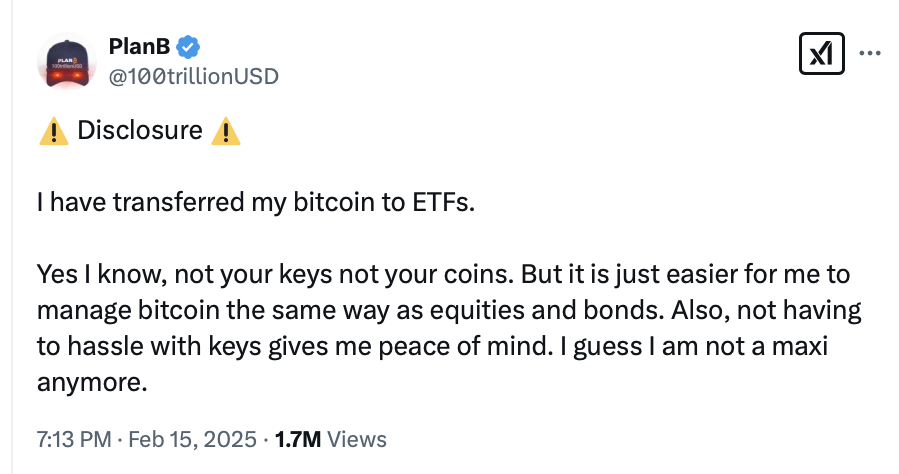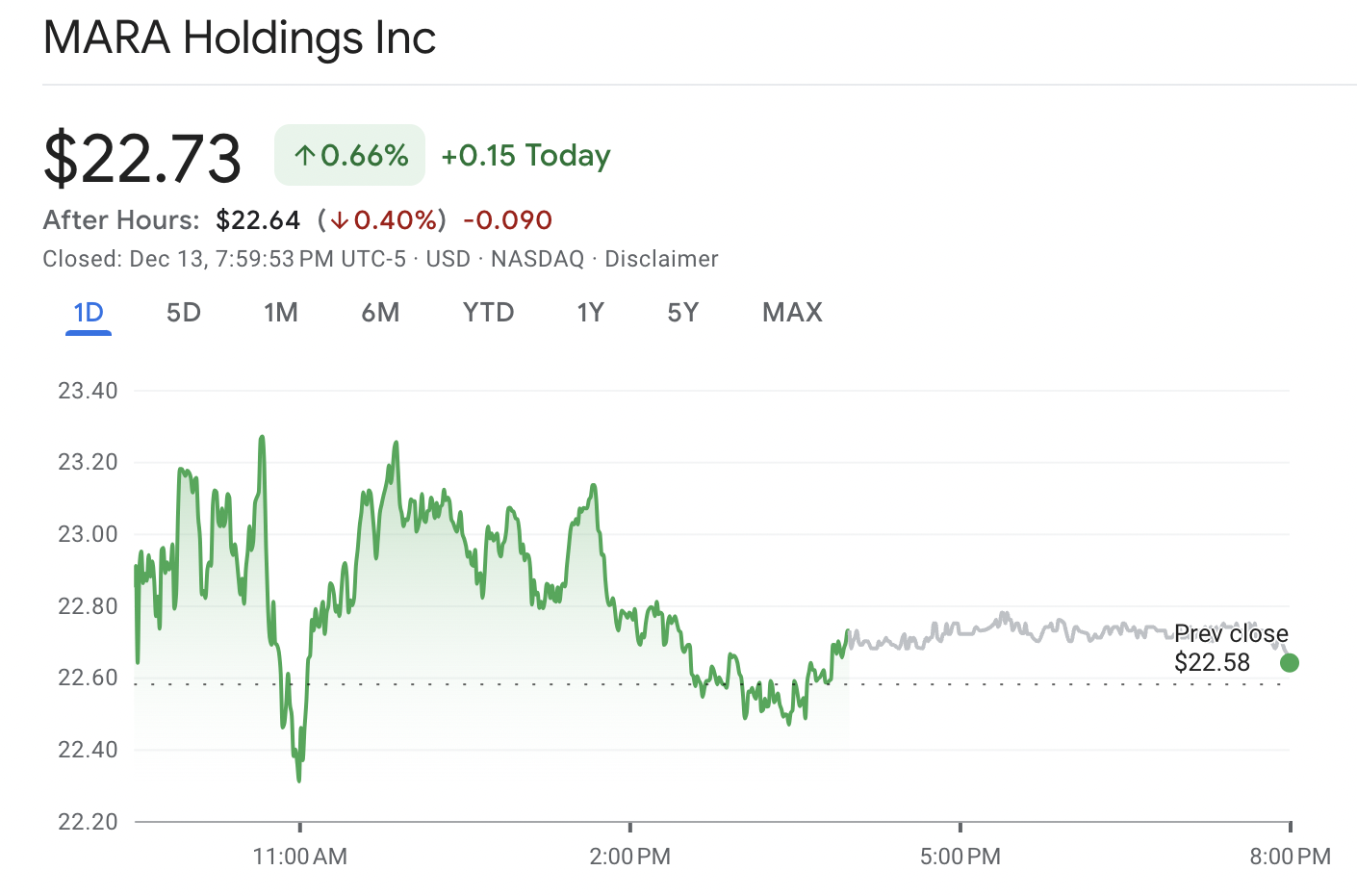Bitcoin analyst PlanB revealed that he has moved all his Bitcoin from self-custody into spot Bitcoin exchange-traded funds (ETFs), in an effort to manage his Bitcoin in the same way as traditional assets.
“I guess I am not a maxi anymore,” PlanB said in a Feb. 15 X post, explaining that he moved his Bitcoin (BTC) into spot Bitcoin ETFs so he can manage his holdings more like equities and bonds — without the complexities of self-custody.
Analyst says no wallet keys provides “peace of mind”
“Not having to hassle with keys gives me peace of mind,” he said. While Bitcoin maxis insist users should always control their own private keys instead of holding their Bitcoin on centralized exchanges, self-custody comes with the responsibility of keeping those keys safe from hackers, thieves, and other bad actors.
Source: PlanB
In 2024, crypto hackers stole over $2.3 billion worth of assets across 165 incidents, marking a 40% increase compared to 2023, according to onchain security firm Cyvers.
Lucas Kiely, chief investment officer of Yield App told Cointelegraph in February 2024 that from a returns perspective, spot Bitcoin ETFs, future ETFs and direct Bitcoin investments are “essentially the same thing” with the only difference being the management fees associated with the ETFs.
PlanB received mixed feedback from his 2 million X followers after the announcement. He admitted he had no idea that Bitcoin ETFs were so controversial.
“In my view, ETFs are a logical step in Bitcoin adoption, next to holding your own keys. Out of curiosity: would it be different in your opinion if I would have bought (Micro)Strategy instead of an ETF, or would that be equally evil?,” he said.
Source: Dan Held
Some users questioned whether the transfer would trigger a taxable event.
Bitcoin ETFs may see $50B in inflows in 2025
PlanB said that selling isn’t taxable in his case since his tax residency is in the Netherlands, where there’s no capital gains tax on realized gains.
Instead, there is an unrealized capital gains tax, otherwise known as a wealth tax. “The government assumes you make ~6% return on your entire wealth (per Jan 1st) and you pay ~30% tax. So you pay ~2% of your entire net wealth every year,” he said.
Related: Bitcoin traders fearful after $651M spot BTC ETF outflows — Is a price crash coming?
Bitwise investment chief Matt Hougan said US spot Bitcoin ETFs could be on track to see over $50 billion in inflows this year.
“So far, so good: Spot Bitcoin ETFs pulled in $4.94 billion in January, which annualizes to ~$59 billion,” Hougan wrote on Feb. 11.
In December, Hougan and Bitwise’s head of research, Ryan Rasmussen, predicted that Bitcoin ETF inflows in 2025 would surpass those of 2024.
Magazine: Korea to lift corporate crypto ban, beware crypto mining HDs: Asia Express



